#Fossil fuels
Explore tagged Tumblr posts
Text
The Climate Change Superfund Act makes major fossil fuel companies financially liable for damage due to extreme weather events and other dangers related to climate change. The amount these companies are responsible for paying depends on their contributions to emissions since 1995.
Money collected from fossil fuel companies will be used to mitigate the health impacts of climate change and improve public infrastructure.
#climate change#climate anxiety#good news#politics#environment#fossil fuels#greenhouse gasses#fossil fuel companies#law#environmental anxiety#hope
7K notes
·
View notes
Text
No paywall version here.
"Two and a half years ago, when I was asked to help write the most authoritative report on climate change in the United States, I hesitated...
In the end, I said yes, but reluctantly. Frankly, I was sick of admonishing people about how bad things could get. Scientists have raised the alarm over and over again, and still the temperature rises. Extreme events like heat waves, floods and droughts are becoming more severe and frequent, exactly as we predicted they would. We were proved right. It didn’t seem to matter.
Our report, which was released on Tuesday, contains more dire warnings. There are plenty of new reasons for despair. Thanks to recent scientific advances, we can now link climate change to specific extreme weather disasters, and we have a better understanding of how the feedback loops in the climate system can make warming even worse. We can also now more confidently forecast catastrophic outcomes if global emissions continue on their current trajectory.
But to me, the most surprising new finding in the Fifth National Climate Assessment is this: There has been genuine progress, too.
I’m used to mind-boggling numbers, and there are many of them in this report. Human beings have put about 1.6 trillion tons of carbon in the atmosphere since the Industrial Revolution — more than the weight of every living thing on Earth combined. But as we wrote the report, I learned other, even more mind-boggling numbers. In the last decade, the cost of wind energy has declined by 70 percent and solar has declined 90 percent. Renewables now make up 80 percent of new electricity generation capacity. Our country’s greenhouse gas emissions are falling, even as our G.D.P. and population grow.
In the report, we were tasked with projecting future climate change. We showed what the United States would look like if the world warms by 2 degrees Celsius. It wasn’t a pretty picture: more heat waves, more uncomfortably hot nights, more downpours, more droughts. If greenhouse emissions continue to rise, we could reach that point in the next couple of decades. If they fall a little, maybe we can stave it off until the middle of the century. But our findings also offered a glimmer of hope: If emissions fall dramatically, as the report suggested they could, we may never reach 2 degrees Celsius at all.
For the first time in my career, I felt something strange: optimism.
And that simple realization was enough to convince me that releasing yet another climate report was worthwhile.
Something has changed in the United States, and not just the climate. State, local and tribal governments all around the country have begun to take action. Some politicians now actually campaign on climate change, instead of ignoring or lying about it. Congress passed federal climate legislation — something I’d long regarded as impossible — in 2022 as we turned in the first draft.
[Note: She's talking about the Inflation Reduction Act and the Infrastructure Act, which despite the names were the two biggest climate packages passed in US history. And their passage in mid 2022 was a big turning point: that's when, for the first time in decades, a lot of scientists started looking at the numbers - esp the ones that would come from the IRA's funding - and said "Wait, holy shit, we have an actual chance."]
And while the report stresses the urgency of limiting warming to prevent terrible risks, it has a new message, too: We can do this. We now know how to make the dramatic emissions cuts we’d need to limit warming, and it’s very possible to do this in a way that’s sustainable, healthy and fair.
The conversation has moved on, and the role of scientists has changed. We’re not just warning of danger anymore. We’re showing the way to safety.
I was wrong about those previous reports: They did matter, after all. While climate scientists were warning the world of disaster, a small army of scientists, engineers, policymakers and others were getting to work. These first responders have helped move us toward our climate goals. Our warnings did their job.
To limit global warming, we need many more people to get on board... We need to reach those who haven’t yet been moved by our warnings. I’m not talking about the fossil fuel industry here; nor do I particularly care about winning over the small but noisy group of committed climate deniers. But I believe we can reach the many people whose eyes glaze over when they hear yet another dire warning or see another report like the one we just published.
The reason is that now, we have a better story to tell. The evidence is clear: Responding to climate change will not only create a better world for our children and grandchildren, but it will also make the world better for us right now.
Eliminating the sources of greenhouse gas emissions will make our air and water cleaner, our economy stronger and our quality of life better. It could save hundreds of thousands or even millions of lives across the country through air quality benefits alone. Using land more wisely can both limit climate change and protect biodiversity. Climate change most strongly affects communities that get a raw deal in our society: people with low incomes, people of color, children and the elderly. And climate action can be an opportunity to redress legacies of racism, neglect and injustice.
I could still tell you scary stories about a future ravaged by climate change, and they’d be true, at least on the trajectory we’re currently on. But it’s also true that we have a once-in-human-history chance not only to prevent the worst effects but also to make the world better right now. It would be a shame to squander this opportunity. So I don’t just want to talk about the problems anymore. I want to talk about the solutions. Consider this your last warning from me."
-via New York Times. Opinion essay by leading climate scientist Kate Marvel. November 18, 2023.
#WE CAN DO THIS#I SO TRULY BELIEVE THAT WE CAN DO THIS#WE CAN SAVE OURSELVES AND THE WORLD ALONG WITH US#climate crisis#united states#climate change#conservation#hope posting#sustainability#climate news#climate action#climate emergency#fossil fuels#global warming#environmentalism#climate hope#solarpunk#climate optimism#climate policy#earth#science#climate science#meteorology#extreme weather#renewable energy#solar power#wind power#renewables#carbon emissions#climate justice
33K notes
·
View notes
Text




Newsmax doing their best help to Kamala here.
#Joe biden#kamala harris#democrats#republicans#fossil fuels#climate change#politics#donald trump#woc#news
2K notes
·
View notes
Text
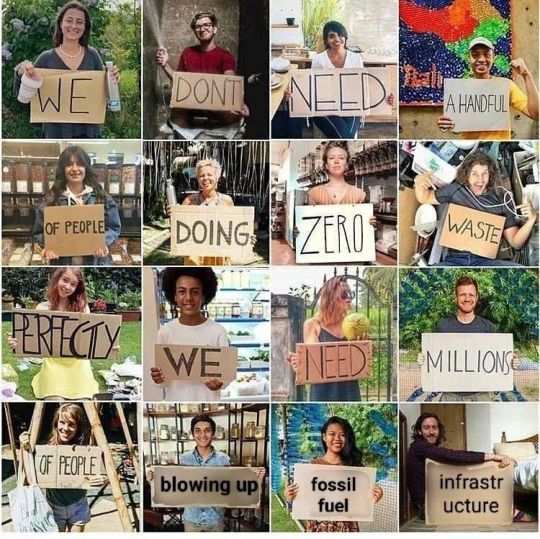
#fossil fuels#infrastructure#global warming#environmentalism#memes#meme#antifascist#co2 emissions#co2#methane#carbon dioxide#jerkmillionaires#jerkbillionaires#jerktrillionaires#eat the rich#eat the fucking rich#ausgov#politas#auspol#tasgov#taspol#australia#neoliberal capitalism#fuck neoliberals#anthony albanese#albanese government#fuck the gop#fuck the police#fuck the supreme court#fuck the patriarchy
7K notes
·
View notes
Text

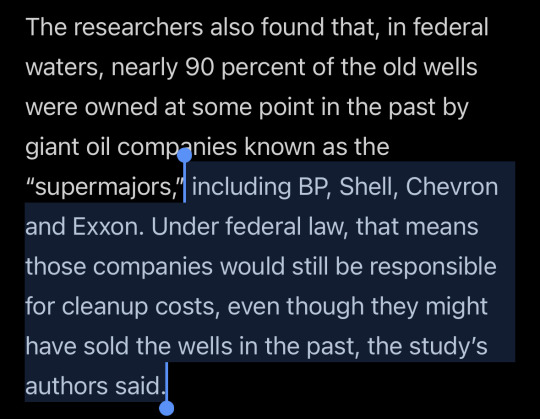
Source
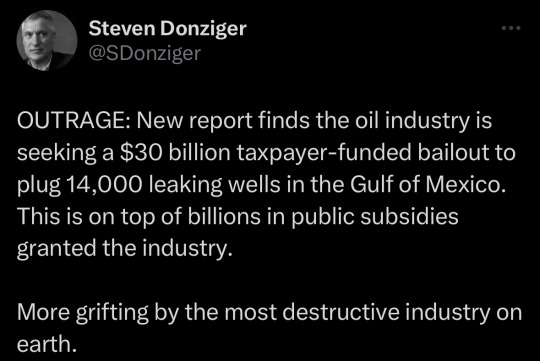
#climate change#fossil fuels#politics#us politics#government#the left#environment#water#clean water#energy#twitter post#progressive#green new deal#ban fossil fuels#environmentalism#environmental justice
12K notes
·
View notes
Text
There it is, the cat is out of the bag, the reason why they have been attacking Gaza and wanting to do an ethnic cleansing

Stealing natural resources, just as they have been doing it in Congo and other places
#genocidal lunatics#fossil fuels#climate change#Gaza#social justice#free Palestine#us imperialism#israeli crimes#ethnic cleansing#Palestine
5K notes
·
View notes
Text
For as long as Bill Gates has been a philanthropist, he’s latched onto popular “world-saving” causes, from population control to polio eradication to standardized testing in schools, each time using his wealth and public relations muscle to appoint himself to a leadership role despite a total lack of qualifications and then changing the foundation’s programmatic direction to follow his lead. Climate change is only the latest cause, and for Gates, it was a convenient way to endear himself to the public all over again as his marriage to foundation cofounder Melinda French Gates collapsed following revelations about the software mogul’s involvement with Jeffrey Epstein. “I think the clear takeaway is that Bill Gates is not who he says he is,” says journalist Tim Schwab, whose Substack and 2024 book The Bill Gates Problem make him one of the few consistent critical voices tracking the billionaire and his namesake foundation. Per Schwab: Just as Gates tries to assert himself as a leader on climate change by making bogus divestment claims, similar contradictions define his entire philanthropic career. He claims his foundation is delivering innovative pharmaceuticals that are saving lives, for example, yet his foundation stands accused of stifling innovation and access through monopolistic behavior. . . . His track record of failures, which have caused incalculable harm, mean he’s the last person on Earth we should look to for leadership on climate change.
17 February 2025
674 notes
·
View notes
Text
An end to the climate emergency is in our grasp
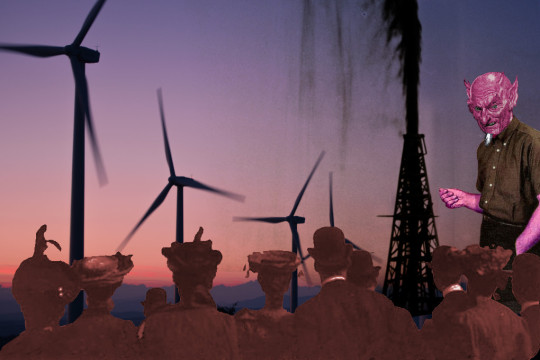
On June 20, I'm keynoting the LOCUS AWARDS in OAKLAND.

The problem with good news in the real world is that it's messy. Neat happy endings are for novels, not the real world, and that goes double for the climate emergency. But even though good climate news is complicated and nuanced, that doesn't mean it shouldn't buoy our spirits and fill our hearts with hope.
The big climate news this past week is the National Oceanic and Atmospheric Administration's clarion call about surging CO2 levels – the highest ever – amid a year that is on track to have the largest and most extreme series of weather events in human history:
https://www.noaa.gov/news-release/during-year-of-extremes-carbon-dioxide-levels-surge-faster-than-ever
This is genuinely alarming and you – like me – have probably experienced it as a kind of increase in your background radiation of climate anxiety. Perhaps you – like me – even experienced some acute, sit-bolt-upright-in-bed-at-2AM anxiety as a result. That's totally justifiable. This is very real, very bad news.
And yet…
The news isn't all bad, and even this terrible dispatch from the NOAA is best understood in context, which Bill McKibben provides in his latest newsletter post, "What You Want is an S Curve":
https://billmckibben.substack.com/p/what-you-want-is-an-s-curve
Financier and their critics should all be familiar with Stein's Law: "anything that can't go on forever will eventually stop." This is true outside of finance as well. One of the reasons that we're seeing such autophagic panic from the tech companies is that their period of explosive growth is at an end.
For years, they told themselves that they were experiencing double-digit annual growth because they were "creating value" and "innovating" but the majority of their growth was just a side-effect of the growth of the internet itself. When hundreds of millions of people get online every year, the dominant online services will, on average, gain hundreds of millions of new users.
But when you run out of people who don't have internet access, your growth is going to slow. How can it not? Indeed, at that point, the only ways to grow are to either poach users from your rivals (through the very expensive tactics of massive advertising and sales-support investments, on top of discounts and freebies as switching enticements), or to squeeze your own users for more.
That's why the number of laptops sold in America slowed down. It's why the number of cellphones sold in America slowed down. It's why the number of "smart home" gizmos slowed down.
Even the steepest hockey-stick-shaped exponential growth curve eventually levels off and becomes an S-curve, because anything that can't go on forever will eventually stop.
One way or another, the world's carbon emissions will eventually level off. Even if we drive ourselves to (or over) the brink of extinction and set up the conditions for wildfires that release all the carbon stored in all the Earth's plants, the amount of carbon we pump into the atmosphere has to level off.
Rendering the Earth incapable of sustaining human civilization (or life) is the ultimate carbon reduction method – but it's not my first choice.
That's where McKibben's latest newsletter comes in. He cites a new report from the Rocky Mountain Institute, which shows a major reversal in our energy sources, a shift that will see our energy primarily provided by renewables, with minimal dependence on fossil fuels:
https://rmi.org/insight/the-cleantech-revolution/
The RMI team says that in this year or next, we'll have hit peak demand for fossil fuels (a fact that is consistent with NOAA's finding that we're emitting more CO2 than ever). The reason for this is that so much renewable energy is about to come online, and it is so goddamned cheap, that we are about to undergo a huge shift in our energy consumption patterns.
This past decade saw a 12-fold increase in solar capacity, a 180-fold increase in battery storage, and a 100-fold increase in EV sales. China is leading the world in a cleantech transition, with the EU in close second. Cleantech is surging in places where energy demand is also still growing, like India and Vietnam. Fossil fuel use has already peaked in Thailand, South Africa and every country in Latin America.
We're on the verge of solar constituting an absolute majority of all the world's energy generation. This year, batteries will overtake pumped hydro for energy storage. Every cleantech metric is growing the way that fossil fuels did in previous centuries: investment, patents, energy density, wind turbine rotor size. The price of solar is on track to halve (again) in the next decade.
In short, cleantech growth looks like the growth of other technologies that were once rarities and then became ubiquitous overnight: TV, cellphones, etc. That growth isn't merely being driven by the urgency of the climate emergency: it's primarily a factor of how fucking great cleantech is:
https://rmi.org/wp-content/uploads/2024/05/the_incredible_inefficiency_of_fossils.pdf
Fossil fuels suck. It's not just that they wreck the planet, or that their extraction is both politically and environmentally disastrous. They just aren't a good way to make energy. About a third of fossil fuel energy is wasted in production and transportation. A third! Another third is wasted turning fossil fuels into energy. Two thirds! The net energy efficiency of fossil fuels is about 37%.
Compare that with cleantech. EVs convert electricity to movement with 80-90% efficiency. Heat pumps are 300% efficient (the main fuel for your heat pump is the heat in the atmosphere, not the electricity it draws).
Cleantech is just getting started – it's still in the hockey-stick phase. That means those efficiency numbers are only going up. Rivian just figured out how to remove 1.6 miles of copper wire from each vehicle. That's just one rev – there's doubtless lots of room for more redesigns that will further dematerialize EVs:
https://insideevs.com/news/722265/rivian-r1s-r1t-wiring/
As McKibben points out, there's been a lot of justifiable concern that electrification will eventually use up all our available copper, but copper demand has remained flat even as electrification has soared – and this is why. We keep figuring out new ways to electrify with fewer materials:
https://www.chemanalyst.com/NewsAndDeals/NewsDetails/copper-wire-price-remains-stable-amidst-surplus-supply-and-expanding-mining-25416#:~:text=Global%20Copper%20wire%20Price%20Remains%20Stable%20Amidst%20Surplus%20Supply%20and%20Expanding%20Mining%20Activities
This is exactly what happened with previous iterations of tech. The material, energy and labor budgets of cars, buildings, furniture, etc all fell precipitously every time there was a new technique for manufacturing them. Renewables are at the start of that process. There's going to be a lot of this dematerialization in cleantech. Calculating the bill of materials for a planetary energy transition isn't a matter of multiplying the materials in current tech by the amount of new systems we'll need – as we create those new systems, we will constantly whittle down their materials.
What's more, global instability drives cleantech uptake. The Russian invasion of Ukraine caused a surge in European renewables. The story that energy prices are rising due to renewables (or carbon taxes) is a total lie. Fossil fuels are getting much more expensive, thanks to both war and rampant, illegal price-fixing:
https://www.thebignewsletter.com/p/an-oil-price-fixing-conspiracy-caused
If not for renewables, the incredible energy shocks of the recent years would be far more severe.
The renewables story is very good and it should bring you some comfort. But as McKibben points out, it's still not enough – yet. The examples of rapid tech uptake had big business on their side. America's living rooms filled with TV because America's largest businesses pulled out all the stops to convince everyone to buy a TV. By contrast, today's largest businesses – banks, oil companies and car companies – are working around the clock to stop cleantech adoption.
We're on track to double our use of renewables before the decade is over. But to hold to the (already recklessly high) targets from the Paris Accord, we need to triple our renewables usage. As McKibben says, the difference between doubling and tripling our renewables by 2030 is the difference between "survivable trouble" and something much scarier.
The US is experiencing a welcome surge in utility scale solar, but residential solar is stalling out as governments withdraw subsidies or even begin policies that actively restrict rooftop solar:
https://twitter.com/curious_founder/status/1798049929082097842?s=51
McKibben says the difference between where we are now and bringing back the push for home solar generation is the difference between "fast" and "faster" – that is the difference between tripling renewables by 2030 (survivable) and doubling (eek).
Capitalism stans who argue that we can survive the climate emergency with market tools will point to the good news on renewable and say that the market is the only way to transition to renewables. It's true that market forces are partly responsible for this fast transition. But the market is also the barrier to a faster (and thus survivable) transition. The oil companies, the banks who are so invested in fossil fuels, the petrostates who distort the world's politics – they're why we're not much farther along.
The climate emergency was never going to be neatly solved. We weren't going to get a neat novelistic climax that saw our problems sorted out in a single fell swoop. We're going to be fighting all the way to net zero, and after that, we'll still have decades of climate debt to pay down: fires, floods, habitat loss, zoonotic plagues, refugee crises.
But we should take our wins. Even if we're far from where we need to be on renewables, we're much farther along on renewables than we had any business hoping for, just a few years ago. The momentum is on our side. It's up to us to use that momentum and grow it. We're riding the hockey-stick, they're on that long, flat, static top of the S-curve. Their curve is leveling off and will start falling, ours will grow like crazy for the rest of our lives.

If you'd like an essay-formatted version of this post to read or share, here's a link to it on pluralistic.net, my surveillance-free, ad-free, tracker-free blog:
https://pluralistic.net/2024/06/12/s-curve/#anything-that-cant-go-on-forever-eventually-stops
#pluralistic#s-curves#bill mckibben#climate emergency#renewables#energy transition#energy#solar#wind#fossil fuels#climate
907 notes
·
View notes
Text
"...Instead of outrage and determination to reduce the dangers, there is an insidious sense of complacency: these things happen. Someone else is responsible. Somebody else will fix it.
Nothing could be further from the truth. The unnatural disaster in Spain – Europe’s deadliest flash floods in at least half a century – is evidence of two undeniable truths: the human-caused climate crisis is just starting to pick up ferocity, and we need to quickly kill the fossil fuel industry before it kills us.
...The dissonance between this sluggish response and the apocalyptic scenes in Spain and elsewhere should be a jolt to the global consciousness. After all, the original meaning of apocalypse is revelation – lifting the cover off, laying things bare. But for that to happen, we need to truly take in and respond to the horror of what the world is going through, and stop pretending we can carry on as usual."
426 notes
·
View notes
Text
#vermont#usa#good news#climate litigation#global climate change#big oil#fossil fuels#environmentalism#science
865 notes
·
View notes
Text
Under what legal experts called a “historic” settlement, announced on Thursday, Hawaii officials will release a roadmap “to fully decarbonize the state’s transportation systems, taking all actions necessary to achieve zero emissions no later than 2045 for ground transportation, sea and inter-island air transportation”, Andrea Rodgers, one of the attorneys representing the plaintiffs in the case, said at a press conference with the governor.
#climate change#global warming#good news#hope#hopepunk#ecoanxiety#environmental grief#climate anxiety#climate grief#environment#fossil fuels#decarbonization#indigenous activism#positivity#climate hope#news#politics#activism#conservation
8K notes
·
View notes
Text
"China’s carbon emissions have flatlined over the past six months and there’s now an opportunity for substantial declines over the next decade, analysts say.
The rapid growth in clean energy generation has been sufficient to offset a recent surge in power demand caused by higher air conditioning use amid late-summer heatwaves, and the government’s manufacturing push, according to an analysis by Lauri Myllyvirta of the Centre for Research on Energy and Clean Air (CREA).
China’s carbon emissions fell by 1% in the second quarter of 2024 and were flat in the third quarter, providing another indication that emissions may have already peaked.
This is largely because solar power output was up 44% in the three months to end-September, compared to a year before, while wind power generation grew 24%. In the first nine months of 2024, China installed 161GW of new solar capacity and 39GW of wind, per CREA data.
For emissions to post a decline in 2024 as a whole, there will need to be a 2% reduction in the fourth quarter, Myllyvirta’s calculations show. That’s probable if power demand growth cools as expected and hydro plants perform in line with historical averages, he wrote in a post on X, adding that over the entire summer period, clean energy expansion covered all electricity demand growth.
“If the current downturn in China’s emissions is sustained — with emissions falling in the second quarter and stable in the third quarter — that would open the door to the country beginning to reduce emissions much faster than its current commitments require.
“This would have enormous significance for the global effort to avoid catastrophic climate change, as China’s emissions growth has been the dominant factor pushing global emissions up for the past eight years since the signing of the Paris climate agreement.”
Based on current trends and targets, CREA expects China’s emissions will decline 30% by 2035. The International Energy Agency says emissions will fall 24% by then based only on stated policies, but that could be raised to 45% if the country follows a pathway that’s consistent with its long-term carbon neutrality target.
For the time being, Chinese policymakers are setting relatively unambitious targets, and “it’s vital that future targets reflect ongoing clean energy trends to avoid locking in lower ambitions,” Myllyvirta said."
-via The Progress Playbook, October 29, 2024
#china#solar power#wind power#renewables#carbon emissions#fossil fuels#asia#climate change#climate action#climate news#good news#hope
5K notes
·
View notes
Text

Watching the debate rn
#mine#2024 debate#us presidential debate#us politics#fossil fuels#environmentalism#donald trump#kamala harris
460 notes
·
View notes
Text




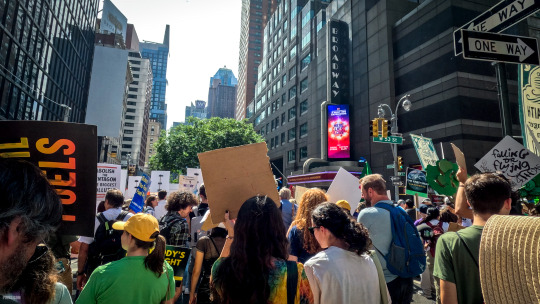


Climate Change March & Rally in New York City, September 17th, 2023.
#nyc#original photography#new york city#new york#photographers on tumblr#climate change#climate crisis#climate emergency#climate action#climate protest#global warming#fossil fuels#environment#protest#end fossil fuels#climate and environment#the lorax#lorax
2K notes
·
View notes
Text




Source

#pretends to be shocked#politics#us politics#government#fossil fuels#climate crisis#climate change#green new deal#Oregon#gnd#environmentalism#environment#the left#progressive#current events#news
728 notes
·
View notes
Text
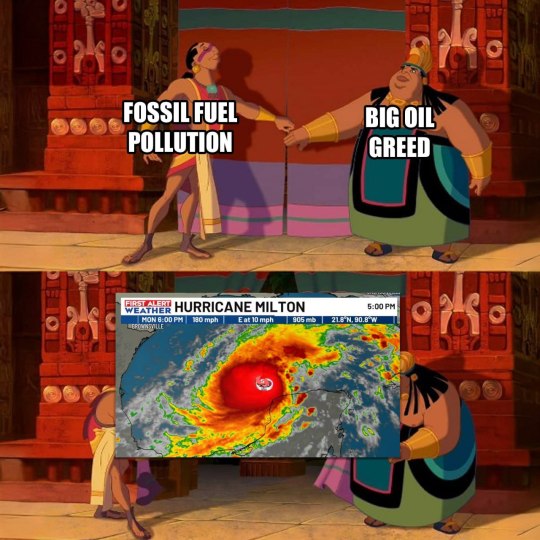
#fossil fuels#pollution#oil companies#oil#gas#csg#coal#hurricane milton#milton#global warming#climate change#science#co2 emissions#co2#methane#earth#environmental#environment#ausgov#politas#auspol#tasgov#taspol#australia#fuck neoliberals#neoliberal capitalism#anthony albanese#albanese government
298 notes
·
View notes